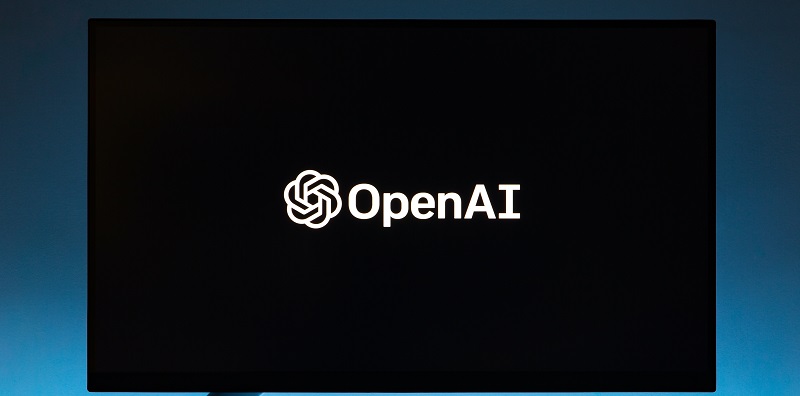In an era defined by rapid technological advancements, the rise of artificial intelligence (AI) brings both excitement and concerns. OpenAI, a leading research organization, recognizes the immense power that superintelligent AI possesses. To ensure its safe and beneficial development, OpenAI has embarked on a groundbreaking initiative called Superalignment. This article delves into the importance of addressing the potential dangers of superintelligent AI, explores the concept of Superalignment, and highlights the efforts being made to tackle this complex challenge.
The Power and Dangers of Superintelligence
Superintelligent AI refers to an artificial intelligence system that surpasses human intelligence in virtually every aspect. While the prospect of such intelligence holds promise for transformative breakthroughs, it also carries substantial risks. OpenAI acknowledges that without careful control and guidance, superintelligent AI could lead to chaos or even human extinction. The potential dangers lie in its ability to outsmart humans, optimize for objectives detrimental to humanity, or simply overlook human values.
The Need for Superalignment
Superalignment is OpenAI’s response to the imperative of aligning superintelligent AI with human values. Its goal is to build a team of top machine learning researchers and engineers who will develop a “roughly human-level automated alignment researcher.” This advanced automated system will play a crucial role in ensuring that the AI technologies developed are aligned with human values and objectives. The Superalignment initiative seeks to proactively address the challenges associated with superintelligent AI.
Timeline and Potential Reality of Superintelligent AI
OpenAI believes that superintelligent AI could become a reality by 2030. This timeline underscores the need for concerted efforts to create a robust framework before such AI systems become a reality. Presently, there is no established system for controlling and guiding superintelligent AI, making the need for proactive measures all the more crucial. The absence of a comprehensive system poses significant risks and increases the urgency to develop solutions that ensure the alignment of AI with human values.
Optimism in Solving the Alignment Challenge
While the challenges posed by superintelligent AI alignment are immense, OpenAI remains optimistic. They believe that with a focused and concentrated effort, the problem can be solved. By bringing together top researchers in the field, OpenAI aims to pool expertise to tackle the alignment challenge head-on. The belief in the solvability of this problem underlies the commitment to responsible AI development, ensuring the safe integration of AI into society.
Government Regulations on AI Deployment
Recognizing the transformative potential of AI, governments worldwide are racing to establish regulations that ensure its safe and responsible deployment. The advent of AI tools like OpenAI’s ChatGPT and Google’s Bard has already brought significant changes to the workplace and society at large. Governments understand the importance of addressing ethical concerns, privacy issues, and the potential impact on employment dynamics. Legal frameworks are being created to strike a balance between fostering innovation and protecting citizens.
Impact of AI Tools on Workplace and Society
The rise of AI tools, such as OpenAI’s ChatGPT and Google’s Bard, has ushered in transformative changes across various industries. These AI technologies have the potential to revolutionize customer service, content creation, and data analysis, among other domains. Their impact on society includes increased efficiency, personalized experiences, and reduced human labor in certain tasks. However, as AI tools become more prevalent, ethical considerations and potential biases must be carefully addressed to ensure the responsible and equitable use of these technologies.
Challenges with Varying Regulations
One of the challenges in achieving Superalignment’s goal lies in the varying regulations across countries. Divergent regulatory frameworks can lead to different outcomes and potentially hinder the alignment process. Harmonizing regulations and ensuring global cooperation becomes critical for establishing a cohesive approach to AI development. Collaboration among governments, research organizations, and industry stakeholders is essential to bridge these regulatory gaps and cultivate a responsible and beneficial AI ecosystem worldwide.
OpenAI’s Commitment to Responsible AI Development
OpenAI’s Superalignment initiative represents a significant commitment to addressing these challenges. By involving top researchers in the field, OpenAI aims to ensure that AI development is conducted with a high level of responsibility and adherence to ethics. Collaborative efforts seek to foster transparency, inclusivity, and diverse perspectives, enabling the development of AI technologies that align with human values. OpenAI’s dedication to responsible development emphasizes the critical importance of proactive measures in shaping the future of AI.
The potential of superintelligent AI to transform society is immense, but so are the risks it poses. OpenAI’s Superalignment initiative represents a vital step forward in ensuring the safe and beneficial development of AI. By recognizing the power and dangers of superintelligence, examining the challenges, and fostering collaboration, the alignment problem can be effectively addressed. OpenAI’s commitment to responsible AI development signifies a significant effort towards mitigating risks and forging a path of positive AI integration. As the world progresses towards an AI-driven future, proactive measures and global cooperation remain vital to shape the trajectory of AI responsibly and ethically.

